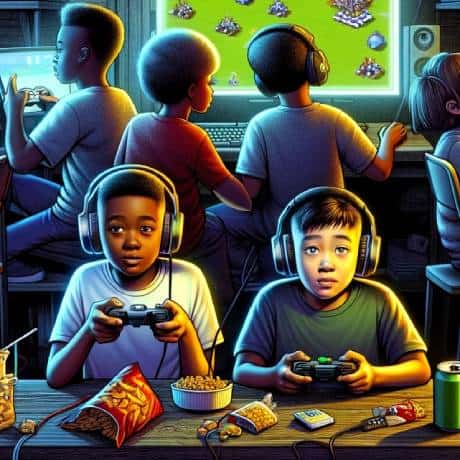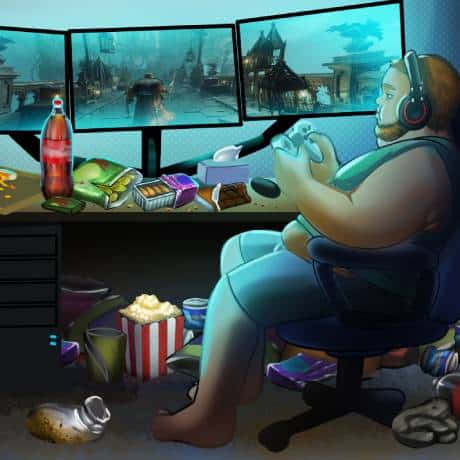Passionate Gamer vs. Gaming Addiction: Identifying the Crucial Differences
Last updated: May 24, 2024Author:
 | Lionel Thomas Father, Gamer and Founder with a Passion for Health, AI, Environment and Gamification of Life. |
Author Tools:
- Grammarly (Spelling and Grammar)
- Fliki (Audio by AI)
- Other Tools (AI)...
Artists:
References:
Problematic digital gaming behavior and its relation to the psychological, social and physical health of Finnish adolescents and young adults
Journal of Behavioral Addictions
https://akjournals.com/view/journals/200...
Summary:
This Finnish study explored problematic gaming behavior among adolescents and young adults, focusing on its relationship with psychological, social, and physical health symptoms. The findings indicated that individuals with self-reported depression and anxiety were more susceptible to engagement with problematic gaming. Additionally, problematic gaming was linked to issues like fatigue, sleep interference, and concentration problems. Socially, it was noted that lower sociability, lower life satisfaction, and a preference for online interaction predicted problematic gaming. Physically, there was no significant difference in activity levels, BMI, or musculoskeletal ailments between normal and problematic gamers, although high levels of physical activity could serve as a protective factor against problematic gaming. Despite these findings, the study highlighted the need for caution due to its cross-sectional design, low response rate, and reliance on self-reported measures. It concluded that a deeper understanding of the origins and consequences of problematic gaming could be beneficial for health and education sectors.Video game addiction in emerging adulthood: Cross-sectional evidence of pathology in video game addicts as compared to matched healthy controls
ScienceDirect
https://www.sciencedirect.com/science/ar...
Summary:
The study examines the impact of video game addiction, as measured by the Internet Gaming Disorder Scale (IGDS), on the mental, physical, and social-emotional health of young adults, particularly males, who are found to be more prone to this condition. The research, conducted among undergraduate college students, showed that those who fit the IGDS criteria for video game addiction demonstrated poorer mental health, cognitive functioning, impulse control, ADHD symptoms, and experienced higher levels of depression, anxiety, and social isolation than non-addicts. It was also observed that video game addiction corresponded with a higher likelihood of problematic internet pornography use, with female video game addicts being uniquely susceptible to adverse outcomes. Despite potential limitations, including self-report measures, this study supports the notion that video game addictions are a valid phenomenon contributing to poorer emotional, physical, mental, and social health.








 Snacks
Snacks Water
Water Eye Sight
Eye Sight Hearing
Hearing


























